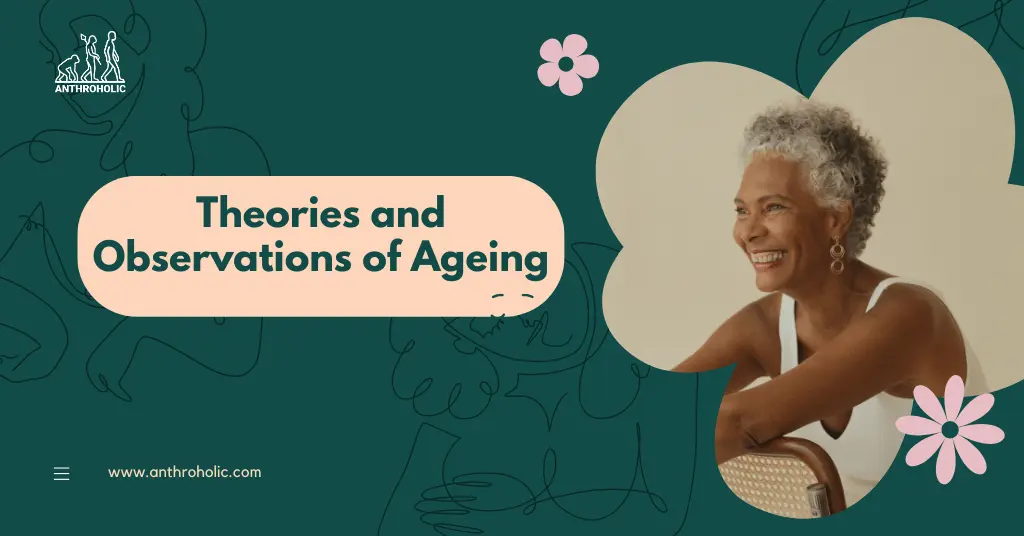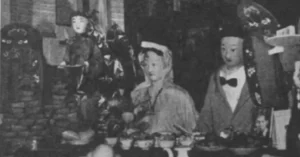AI Answer Evaluation Platform Live Now. Try Free Answer Evaluation Now
Theories and Observations of Ageing
Ageing, an inevitable part of life, is a complex process involving a multitude of biological, psychological, and sociological interactions. Since time immemorial, humans have sought to understand the process of ageing and the reasons for its existence. This quest has resulted in a variety of theories and observations that attempt to explain the process and impacts of ageing.

Biological Theories of Ageing
Several biological theories propose various physiological and biochemical processes responsible for ageing. They can be categorized into three primary schools of thought: genetic theories, damage or error theories, and programmed theories.
Genetic Theories
Genetic theories suggest that ageing is a predetermined process, programmed into our genes.
- Mutation Accumulation Theory: The theory suggests that the accumulation of mutations in the DNA over time causes ageing. The body’s inability to repair all these mutations leads to the degeneration of cells and tissues.
- Disposable Soma Theory: According to this theory, the body prioritizes reproduction over maintenance. As resources are finite, the body invests more in reproduction at the expense of repair and maintenance, resulting in ageing.
Damage or Error Theories
Damage or error theories propose that ageing results from damage accumulated over time.
- Free Radical Theory: This theory postulates that free radicals damage cells and tissues over time, leading to ageing. Free radicals are by-products of various metabolic activities and can cause significant cellular damage.
- Wear and Tear Theory: This theory suggests that cells and tissues wear out over time, just like any mechanical device, leading to ageing.
Programmed Theories
Programmed theories propose that ageing is a pre-determined process, controlled by biological clocks operating within each organism.
- Telomere Theory: Telomeres, the protective caps at the ends of our chromosomes, shorten with each cell division. This theory suggests that when telomeres reach a critically short length, cells can no longer divide, leading to ageing.
- Hormonal Regulation Theory: This theory holds that hormonal regulation and changes over time play a significant role in the ageing process. For instance, decreased production of growth hormones may cause symptoms of ageing.
Observations of Ageing
The impact of ageing varies considerably across individuals. However, common observations often reported include:
- Physical Changes: These include grey hair, wrinkles, loss of muscle mass, and decreased bone density.
- Cognitive Changes: Ageing may lead to slower cognitive processing speed and difficulties in learning new information.
- Emotional Changes: Many people experience increased contentment and stability in their emotions as they age.
Impact of Lifestyle on Ageing
Several lifestyle factors are known to influence the process of ageing. These include:
- Diet: A balanced diet rich in antioxidants can combat the damage caused by free radicals, potentially slowing the ageing process.
- Exercise: Regular physical activity has been shown to maintain cardiovascular health, muscle mass, and bone density.
- Stress Management: Chronic stress can accelerate the ageing process by promoting free radical activity and causing inflammation.
Ageing and Diseases
Ageing is associated with an increased risk of numerous diseases, including:
- Cardiovascular diseases
- Alzheimer’s disease
- Osteoporosis
- Type 2 diabetes
- Certain types of cancer
Table: Common Diseases Associated with Ageing
| Disease | Description |
|---|---|
| Cardiovascular Diseases | Ageing can lead to hardening of the arteries, leading to heart attacks and strokes. |
| Alzheimer’s Disease | This is a type of dementia that affects memory, thinking, and behavior. The risk increases with age. |
| Osteoporosis | Ageing can lead to loss of bone mass, leading to increased risk of fractures. |
| Type 2 Diabetes | Ageing is associated with insulin resistance, leading to type 2 diabetes. |
| Cancer | The risk of many types of cancer increases with age due to the accumulation of genetic mutations. |
Therapeutic Interventions and Ageing
Understanding the underlying mechanisms of ageing has led to the development of therapeutic interventions aimed at delaying the ageing process and improving health during old age. These can range from pharmacological treatments to lifestyle modifications.
1. Pharmacological Interventions
- Antioxidants: As the Free Radical Theory suggests, antioxidants can neutralize free radicals and reduce cellular damage, potentially slowing the ageing process.
- Telomerase Activators: As the Telomere Theory suggests, activating telomerase to lengthen telomeres could theoretically delay the ageing process. However, this field is still very much under research.
- Senolytics: These are drugs that selectively remove senescent cells, which are cells that have stopped dividing and accumulate with age.
2. Lifestyle Modifications
- Exercise: Regular physical activity has been shown to maintain overall health and wellness, improve cardiovascular health, muscle mass, and bone density, all of which can delay ageing effects.
- Balanced Diet: A balanced diet rich in nutrients and antioxidants can fight the damage caused by free radicals and slow the ageing process.
- Stress Management: Effective stress management strategies, such as mindfulness and meditation, can reduce chronic stress and inflammation, potentially slowing the ageing process.
Psychological Theories of Ageing
Just as biological theories explain physical ageing, psychological theories offer explanations for mental and emotional changes during ageing.
- Disengagement Theory: This theory suggests that as people age, they naturally withdraw from social involvement and seek more quiet and withdrawn lives. This process is mutually beneficial for both the individual and society.
- Activity Theory: Contrary to the Disengagement Theory, the Activity Theory argues that staying mentally and socially active leads to greater satisfaction in older age.
- Continuity Theory: This theory proposes that older adults try to maintain the same habits, personalities, and styles of life they had in younger years. It suggests that people resist changes in life to maintain continuity.
Ageing and Society
Ageing can significantly influence societal structures. Some key areas impacted by ageing include:
- Workforce and Economy: As people age and retire, changes occur in the labor market and overall productivity of the economy.
- Healthcare: With ageing, the need for healthcare services and long-term care increases, affecting healthcare systems and policies.
- Social Structures: The roles and statuses of older adults in society can change, impacting family structures and social networks.
The Future of Ageing Research
The study of ageing is a dynamic field, with ongoing research providing new insights and theories. Current areas of interest in ageing research include:
- Exploring the genetic basis of ageing and longevity.
- Investigating the impacts of lifestyle factors such as diet, physical activity, and stress on ageing.
- Developing novel therapeutic interventions to delay ageing and improve the quality of life in old age.
Conclusion
Ageing is a complex, multifaceted process influenced by a variety of genetic, biological, psychological, and social factors. Despite the challenges it presents, it also offers opportunities for growth, development, and wisdom. By understanding the theories and observations of ageing, we can not only appreciate the process better but also implement strategies to age healthily and gracefully. Our expanding knowledge of ageing will continue to shape how we, as individuals and a society, approach this intriguing stage of life.



